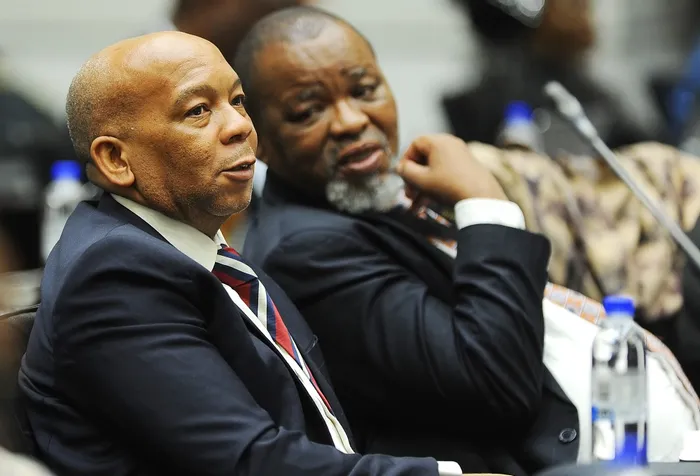World Bank notes SA, Namibia progress with reforms

The World Bank Group delegation had a tour of and stakeholder engagement at the Komati power station – the site of the Eskom Just Energy Transition Project. Photo: GCIS
The World Bank Group (WBG) has noted progress made by the South African and Namibian governments in achieving their development goals following a visit by a delegation of the bank’s board of Executive Directors (ED) two weeks ago.
The bank yesterday reaffirmed its commitment to providing support to South Africa and Namibia after 11 EDs and Alternate EDs were hosted by the World Bank and International Finance Corporation (IFC) country offices during their recent visit on July 7-13.
The visit provided a platform to assess progress with projects and engage on the evolution of the World Bank Group’s relationship with the countries, from a knowledge-focused to a broader knowledge and financing partnership.
EDs met government and business leaders, local stakeholders, and project beneficiaries, and experienced first-hand how the countries manage development priorities and challenges.
The bank said South Africa and Namibia have common challenges, including poverty, unemployment, and inequality.
Throughout the visit, the delegation discussed the ongoing and future support from the World Bank Group to boost inclusive economic growth and job creation.
The bank said over the past three years South Africa has shifted from being a non-borrowing client to a having an annual International Bank for Reconstruction and Development (IBRD) lending of over $1 billion per year.
It said South Africa also constitutes the largest IFC portfolio in Africa and the Multilateral Investment Guarantee Agency’s (MIGA) second largest on the continent.
“In South Africa, the delegation met with the Minister of Finance, Honorable Enoch Godongwana, and the Minister of Electricity and Energy, Honourable Kgosientsho Ramokgopa,” the bank said.
“EDs visited two IFC clients and two World Bank projects which showcased support for key government priorities and demonstrated how these projects link to global issues and corporate initiatives such as energy and just transition, health, urban development, and subnational government engagement.
“The delegation had a tour of and stakeholder engagement at the Komati power station – the site of the Eskom Just Energy Transition Project; the Addo Elephant Park that houses the innovative Wildlife Conservation Bond; and the IFC-supported Trust for Urban Housing Finance and BioVac Institute that manufactures vaccines locally.”
In Namibia, the World Bank Group said it was preparing a new Country Partnership Framework (CPF) with the government that would strategically guide its support as the engagement continues to grow.
The World Bank recently approved a $138.5 million renewable energy and transmission loan to NamPower, after 15 years without IBRD borrowing.
“In Namibia, the delegation met with Minister of Finance and Public Enterprises Honourable Ipumbu Shiimi and key stakeholders, including development partners and the private sector,” it said.
“The delegation visited informal settlements near Windhoek to gain insights on housing related issues, a sector where IFC is investing and which the government has identified as a priority for the World Bank Group engagement.”
Matteo Bugamelli, the World Bank’s executive director, expressed optimism about the countries' progress.
He emphasised the World Bank Group’s commitment to helping South Africa and Namibia address unemployment and inequality challenges, and particularly welcomed the increased financing to support the implementation of much-needed reforms.
Meanwhile, the composite leading business cycle indicator in South Africa fell by 1% month-on-month in May, reversing a 2.4% increase from April, as decreases in seven of the 10 available component time series outweighed increases in the remaining three.
The largest negative contributors were a decrease in the number of residential building plans approved and a deceleration in the six-month smoothed growth rate of job advertisement space.
On the other hand, the key positive contributors were an increase in South Africa’s US dollar-denominated export commodity price index and an improvement in the RMB/BER Business Confidence Index.
There has been constant electricity supply throughout the second quarter of 2024 and this has bolstered economic activity compared to both the second quarter of 2023 and the first quarter of 2024, when load shedding was prevalent.
Investec chief economist, Annabel Bishop, said Eskom remains proactive in securing a reliable energy supply for South Africa, which will positively feed into strengthening economic growth and lifting the trajectory towards 3.0% year-on-year over the medium-term.
“However, urgent action in repairing, maintaining and replacing infrastructure at Transnet needs to be supported in order to deliver a faster economic growth outlook,” Bishop said.